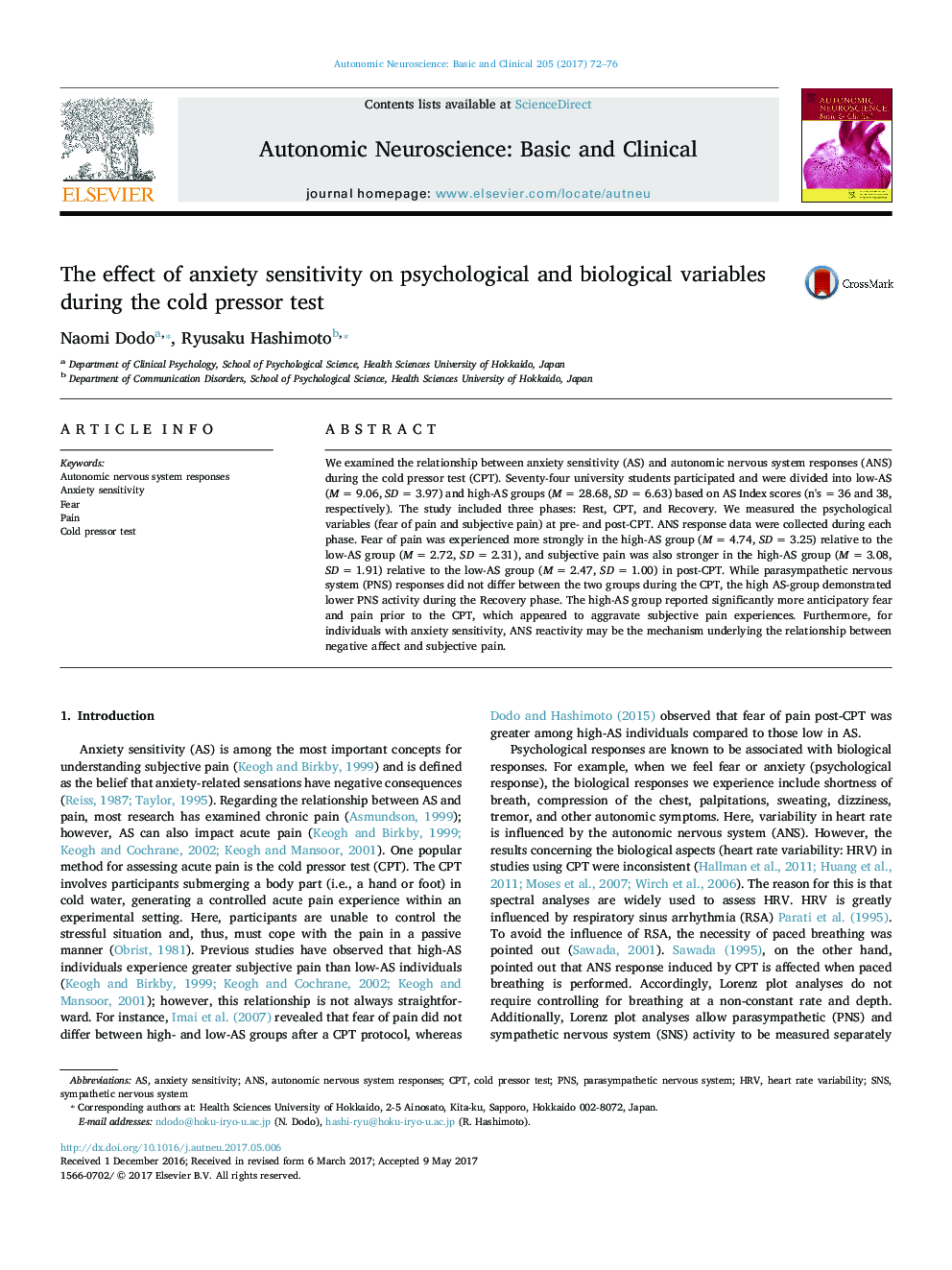| Article ID | Journal | Published Year | Pages | File Type |
|---|---|---|---|---|
| 5626115 | Autonomic Neuroscience | 2017 | 5 Pages |
â¢Anxiety sensitivity (AS) increased the fear and pain during cold pressor test (CPT).â¢The biological influence of AS on CPT have not been adequately studied.â¢The biological effect of AS appears not in the CPT phase but in the Recovery phase.â¢The high-AS group had low parasympathetic nervous system activity.
We examined the relationship between anxiety sensitivity (AS) and autonomic nervous system responses (ANS) during the cold pressor test (CPT). Seventy-four university students participated and were divided into low-AS (M = 9.06, SD = 3.97) and high-AS groups (M = 28.68, SD = 6.63) based on AS Index scores (n's = 36 and 38, respectively). The study included three phases: Rest, CPT, and Recovery. We measured the psychological variables (fear of pain and subjective pain) at pre- and post-CPT. ANS response data were collected during each phase. Fear of pain was experienced more strongly in the high-AS group (M = 4.74, SD = 3.25) relative to the low-AS group (M = 2.72, SD = 2.31), and subjective pain was also stronger in the high-AS group (M = 3.08, SD = 1.91) relative to the low-AS group (M = 2.47, SD = 1.00) in post-CPT. While parasympathetic nervous system (PNS) responses did not differ between the two groups during the CPT, the high AS-group demonstrated lower PNS activity during the Recovery phase. The high-AS group reported significantly more anticipatory fear and pain prior to the CPT, which appeared to aggravate subjective pain experiences. Furthermore, for individuals with anxiety sensitivity, ANS reactivity may be the mechanism underlying the relationship between negative affect and subjective pain.
